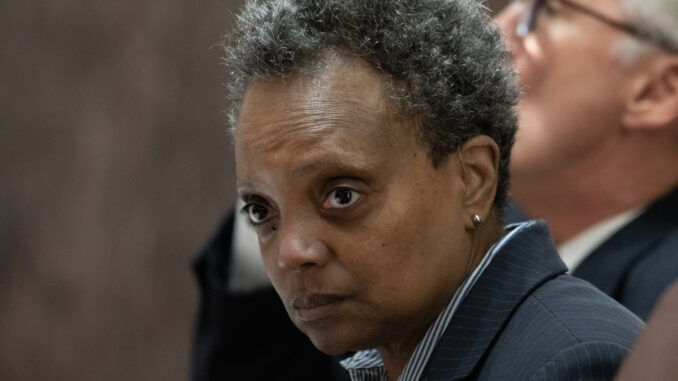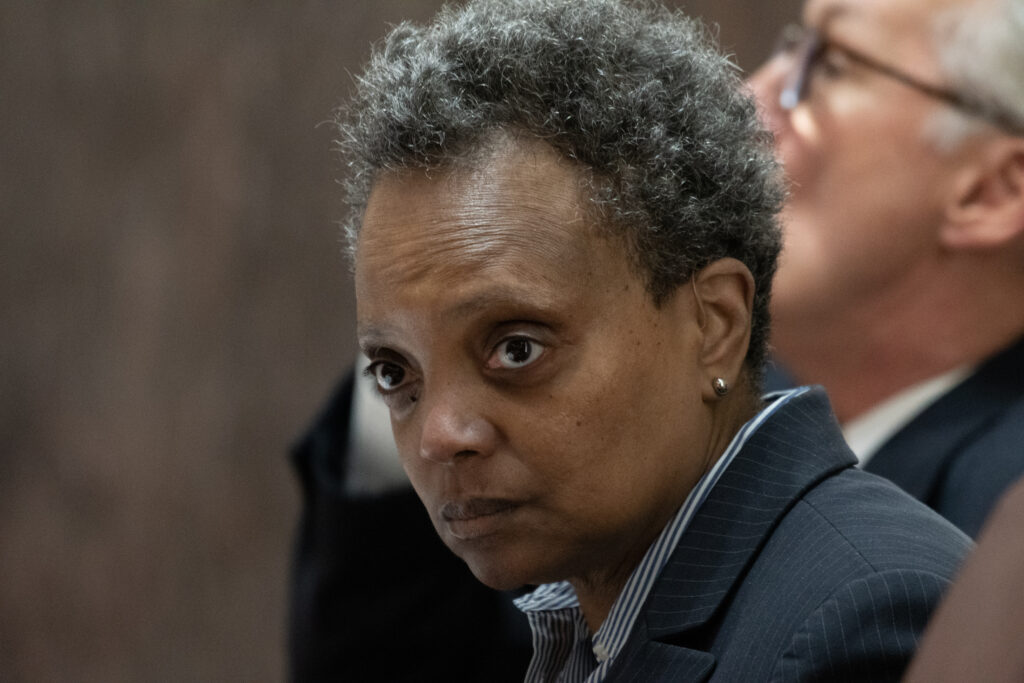

Chicago’s political landscape was rocked today as Mayor Lori Lightfoot was ousted from her position in the first round of elections. The race for Chicago’s next mayor is now a head-to-head runoff between two political veterans: Paul Vallas and Willie Wilson.
Lightfoot, who was elected in 2019 as Chicago’s first Black female and openly gay mayor, faced criticism over her handling of a number of issues during her tenure, including the city’s response to the COVID-19 pandemic, police reform, and the city’s struggling public schools.
Despite her efforts to improve the city’s finances and reduce crime rates, Lightfoot’s popularity dwindled over the past year as residents grew increasingly frustrated with the slow pace of change.
With 97% of precincts reporting, Lightfoot was trailing behind both Vallas and Wilson, with just 17% of the vote compared to Vallas’ 40% and Wilson’s 26%.
Vallas, a former Chicago Public Schools CEO and budget director for Mayor Richard M. Daley, ran on a platform of fiscal responsibility and improving the city’s public schools.
In a statement following his victory, Vallas said: “I am humbled by the support of the people of Chicago, and I promise to work tirelessly to make our city a better place for all residents.”
Wilson, a businessman, and philanthropist who ran unsuccessfully for mayor in 2015 and 2019, emphasized his commitment to addressing poverty and inequality in the city, as well as improving public safety.
“I’m running for mayor because I believe that the people of Chicago deserve a leader who will fight for them, no matter what,” Wilson said in a statement. “I promise to be that leader, and to never forget where I come from or who I’m fighting for.”
The runoff election is scheduled for April 26th, giving both candidates just over two months to make their case to voters.
Meanwhile, Lightfoot issued a statement conceding the election and congratulating her opponents.
“I want to thank the people of Chicago for giving me the opportunity to serve as their mayor for the past three years,” Lightfoot said. “While I may not have been able to accomplish everything I wanted to, I am proud of the progress we’ve made, and I know that Chicago will continue to thrive under new leadership.”
The outcome of the election represents a significant shift in Chicago’s political landscape, with both Vallas and Wilson representing a departure from Lightfoot’s progressive agenda.
Vallas, who has been critical of Lightfoot’s handling of the city’s finances, has pledged to balance the city’s budget within his first term in office. He has also promised to increase funding for public schools and expand access to early childhood education.
Wilson, meanwhile, has emphasized his commitment to social justice and has proposed a number of ambitious initiatives, including a $15 minimum wage, universal healthcare, and free public college for all residents.
Both candidates face significant challenges in the coming weeks as they seek to rally support from voters and distinguish themselves from one another.
For Vallas, the challenge will be convincing voters that he has the experience and expertise to steer the city through a period of economic uncertainty and social upheaval.
For Wilson, the challenge will be overcoming his reputation as a perennial candidate and convincing voters that he has a viable plan for addressing the city’s most pressing issues.
Regardless of who wins the runoff, the next mayor of Chicago will face an uphill battle in addressing the city’s long-standing problems. But with a new administration comes new hope, and Chicago residents will be watching closely to see how their next leader plans to tackle the challenges ahead.
